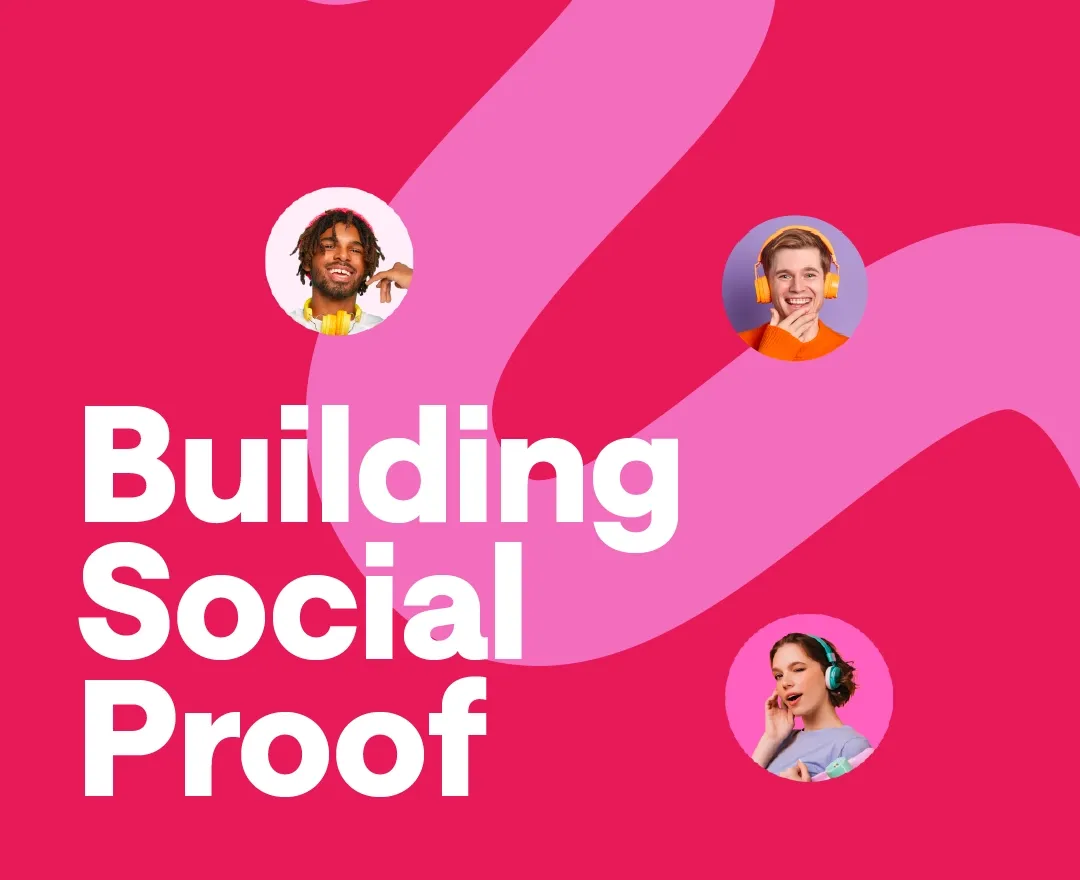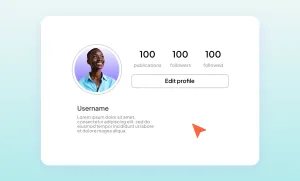What was the last thing you bought? A new kitchen appliance? A book? A DIY lash lift kit?
And what motivated you to buy this item? Did it meet a basic need? Did you see someone raving about it on social media? Was it recommended to you by a friend? Was it on offer at the store? Did it have insane reviews on Amazon?
Three of the motivators above are examples of ‘social proof,’ a psychological phenomenon that has been proven to influence people’s beliefs and actions, including their behavior online.
But before we dive into how social proof can be used to influence people’s purchasing decisions and even which creators they engage with online, let’s define what social proof means.
What is social proof? It’s all about influence
As mentioned, social proof is a psychological phenomenon — and one that you’ve most likely experienced, even unwittingly.
If you’ve ever followed a fashion trend, bought from an ‘expert-recommended,’ decided to listen to a podcast because of a good review, or bought an air fryer because your friend wouldn’t stop raving about it, you’ve been influenced by social proof.
Social proof involves people copying the actions of others due to normative social influence. For example, marketers often use tangible proof of people's positive opinions of a product or service to build trust, reduce perceived risk, and encourage social validation.
There are six types of social proof, which include:
- Expert social proof is when an industry expert lends trust to a brand via collaboration or endorsement. Think of the ‘Dentists recommend!’ message you see in toothpaste ads.
- Celebrity influencing is when brands pay a celebrity to endorse their product.
- User social proof is when current or past users recommend a product based on their real experiences. Examples include testimonials, reviews, praise on social media, and user-generated content (UGC).
- The wisdom of the crowd is when a large group of people popularize a product. This is why you so desperately wanted a Razr flip phone in middle school — because everyone had one.
- The wisdom of your friends is when you see your friends or family engaging with a brand and follow suit because you trust their recommendation.
- Certification is a more formal type of social proof in which businesses are awarded a ‘stamp of approval’ by an authority figure, either via industry awards or recognition for reaching milestones. This can even include subscriber counts or engagement stats!
To cut a long story short, anything that acts as a positive, third-party endorsement for a brand, business, product, service, or experience falls under the ‘social proof’ umbrella.
And it’s something you can leverage to encourage potential fans to engage with your content. If you want to know how keep reading.
How does social proof impact online behavior? Do I need to use it?!
90% of people have purchased a product after being influenced by friends or family. Social proof is so effective as a marketing tool because it capitalizes on this.
While social proof occurs naturally as people share their experiences online, savvy creators can use it to influence audience behavior by shaping perceptions of their online brand and encouraging engagement.
But that isn’t to say that you have to use social proof. It isn’t a non-negotiable, and, really, all social proof isn’t created equal.
Social proof can be hugely influential in driving engagement for creators and conversions for brands — especially when we remember that people tend to trust word-of-mouth — but if you don’t have any testimonials, UGC, or a high follower count to lean on just yet, it’s not the end of the world.
These are all things that come with time and should NEVER be faked, as people can smell inauthenticity a mile away.
6 ways to build social proof as a content creator
Whether you have a podcast or are growing your YouTube channel or TikTok following, you can leverage social proof to influence your audience’s online behavior and boost your presence.
Not sure how to get started? Here are a few ideas:
1) Invite experts to take over your platforms
Invite an expert in your niche to take over your social media, appear on your channel, or guest on your podcast. By tapping into their influence, you can build your own credibility.
2)React to your mentions
If your show or channel is mentioned in a press publication, by a bigger creator, or by a celebrity, shout about it from the rooftops!
3) Audience shout-outs
A clever way to encourage audience engagement and create social proof is to shout out a different follower or comment at the end of your videos.
4) User-generated content
Did you know that you can aggregate content created by your real-life fans, such as videos, photos, and testimonials, to be reposted to your social platforms? This is known as UGC and has the added benefit of building a tight-knit audience community.
5) Reviews and engagement
Encourage your listeners to review your podcast on their chosen app or request they follow your channel and share it with friends.
6) Milestones
One of the most iconic examples of certification social proof in digital media is YouTube’s follower plaques. They make for amazing set pieces in the back of videos and provide channels with indisputable proof that they post great content.








